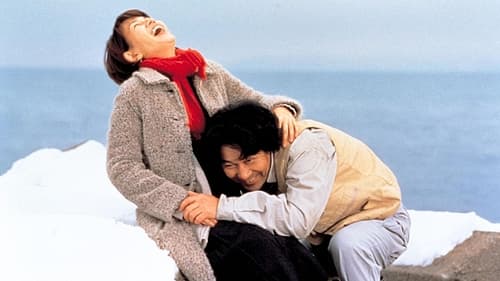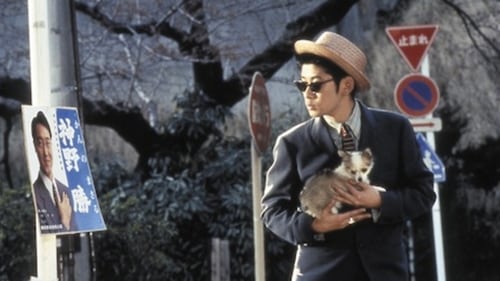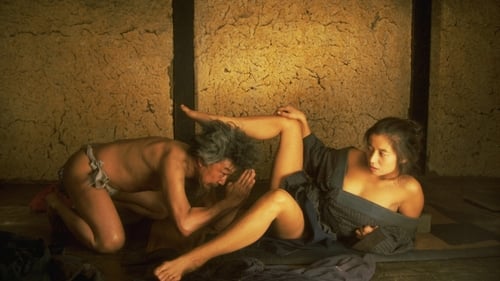Sumiko Sakamoto
Nascimento : 1936-11-25, Osaka, Japan
Morte : 2021-01-23
História
From Wikipedia, the free encyclopedia
Sumiko Sakamoto was born on November 26, 1936 in Osaka, Japan. Sakamoto is a singer and award-winning actress whose heartfelt performances made her a favorite of the late film director Shohei Imamura. Imamura cast her in three of his films, among them "The Ballad of Narayama," winner of the Palme d'Or at the 1983 Cannes Film Festival, in which her brilliant portrayal of an elderly mother not only earned her a kiss from Orson Welles, but also the Japanese Best Actress Award from Nihon Academy.
Description above from the Wikipedia article Sumiko Sakamoto, licensed under CC-BY-SA, full list of contributors on Wikipedia.

Granny
Three high school girls living out in the country build stories out from their local environment, mountainous and bordered by an unkempt buried forest.

Masako Yamada
A down-and-out businessman travels to a seaside town, where he meets a woman with unusual sexual powers.

Lioness (voice)
Elmer is told by a traveling cat about a baby dragon who is being held captive and mistreated on the scary Wild Island. Elmer decides to investigate and battles tigers, crocodiles and gorillas in order to rescue the little dragon.

Based on the long running manga of the same name by Sadao Shouji.

Minato no Mary
Broke, his vintage Nash convertible repossessed, private eye Mike Hama is reduced to combing the mean streets of the Yokohama waterfront on a borrowed bicycle. But when Lily, a beautiful stripper from out of Hama's past, returns to town, the fuse is lit on a criminal powder keg set to blow the lid off the Yokohama underworld.

Mutsuko's mother
Adventures of a young high school teacher and his oddball students.

Orin
Em uma pequena aldeia em um vale, todo mundo que chega aos 70 anos deve deixar a aldeia e ir para o topo de uma determinada montanha para morrer. Se alguém recusasse, iria desonrar sua família. O velho Orin tem 69 anos. Neste inverno, é a vez dela ir para a montanha. Mas primeiro ela deve se certificar de que seu filho mais velho, Tatsuhei, encontre uma esposa.

Woman in Reception
Sometimes… Like a Prostitute is a 1978 Roman Porno film directed by Masaru Konuma and starring singer Rei Nakanishi, whose hit song inspired the story.

Tamako Tamamura
A series of murders has been committed by someone with a new model gun, a Mord-Gessel X 38. Indeed, Daisuke himself is almost killed while investigating the case. This occurred while he was with Ritsuko, daughter of a company president. Detective Kimura thinks that the president himself, returned to Japan after an absence of fifteen years, might be the killer, or at least the man who supplied the gun. Ritsuko's father limps and though she explains this as the result of a traffic accident, Kimura remembers a narcotics smuggler named Suginami who shot himself in the ankle and then escaped from the hospital. He believes that the company president and the drug peddler are the same.

Tami
Three tales of women that resided in the Shogun's harem (o-oku) during the Edo period.

Quick Drawer Dog (早射ち犬 Hayauchi inu) is a 1967 film directed by Tetsutarō Murano. It is the eighth film in the Inu series.

Stray Dog (野良犬) is a 1966 film directed by Yoshio Inoue. It is the seventh film in the Inu series.

Zoku teppō inu (続鉄砲犬) is a 1966 film directed by Mitsuo Murayama. It is the sixth film in the Inu series.

Haru Masuda
Subu makes pornographic films. He sees nothing wrong with it. They are an aid to a repressed society, and he uses the money to support his landlady, Haru, and her family. From time to time, Haru shares her bed with Subu, though she believes her dead husband, reincarnated as a carp, disapproves. Director Shohei Imamura has always delighted in the kinky exploits of lowlifes, and in this 1966 classic, he finds subversive humor in the bizarre dynamics of Haru, her Oedipal son, and her daughter, the true object of her pornographer-boyfriend’s obsession. Imamura’s comic treatment of such taboos as voyeurism and incest sparked controversy when the film was released, but The Pornographers has outlasted its critics, and now seems frankly ahead of its time.

Following the journey of a caterpillar along the Japanese islands from Nagasaki to Hokkaido, this allegorical and oblique first feature film by Kuroki depicts in exquisite images a series of encounters and life's turning points.

Tsuruko
Fifth film in the "Inu" series.

Abare inu is a 1965 action-comedy film directed by Kazuo Mori. It is the fourth film in the series.

A young woman (Dan) who worked as a prostitute in the days following World War II finds herself sexually dissatisfied with her husband and contemplates returning to an old lover who comes back into her life.

Machiko

Mitsuko
As Japan is preparing to host the Olympics, a gang member wanting to go to America is sought after by the police after helping his friend conduct a robbery.

First movie of the Inu series directed by Tokuzō Tanaka

First ninkyo yakuza picture at Toei directed by Teruo Ishii

Osumi
Ghost comedy film.








